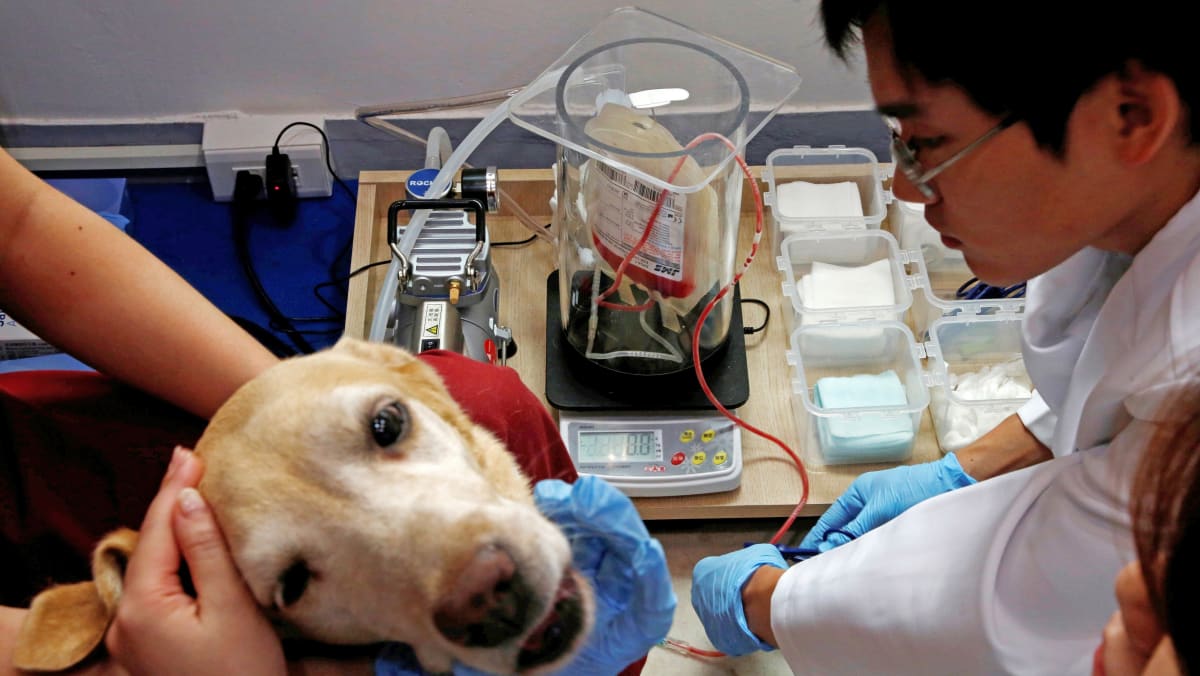Last Updated on December 28, 2022
Are you in search for a part time Veterinary course in Singapore? Infolearners is an Education Center that offers Teaching Assistant Courses, Workplace Safety Courses and Themed Holiday Workshops. We help individuals to study at your own pace with more flexibility. visit our website www.infolearners.com to find out more.
You love animals. You wish to be a vet. So, you have shortlisted veterinary courses in part time and full time in Singapore. Now all that’s left is to take the plunge. But where do you start? How do you go about choosing the right vet school? Well, that’s not a problem anymore! I have done all the hard work for you and come up with a list vet technician course and veterinary degree recognised in singapore in Singapore.
Part Time Veterinary Course Singapore

Duration 2.5 Years (Part-time) Frequency 7pm – 10pm on 3 weekdays Certificate Part-time Diploma & Post-Diploma
Course Overview
Having a deep love of animals is a good start, but it isn’t enough! As veterinary medicine steadily advances, there is an increasing demand for veterinary professionals with in-depth knowledge of the science, veterinary best practice and current welfare issues, in the industry.
This course will provide participants with the knowledge and skills in veterinary science and technology for the improvement of animal welfare. As a diploma graduate, you will be able to perform tasks that include but are not limited to, handling and care of small animals and aquatic species, veterinary practice management, veterinary surgical nursing techniques and diagnostic laboratory procedures.
Entry Requirements
| ‘O’ Levels | At least 3 ‘O’ Level passesand 1 year of relevant working experience OR |
| Higher Nitec | GPA ≥ 2.0 ORGPA ≥ 1.5 and 1 year of relevant working experience OR |
| Nitec | GPA ≥ 3.5 ORGPA ≥ 3.0 and 1 year of relevant working experience OR |
| Higher Nitec in Technology/Services | GPA ≥ 2.0 and 1 year of relevant working experience OR |
| Nitec in Technology/Services | GPA ≥ 3.5 and 1 year of relevant working experience OR |
| WSQ Qualification | Relevant WSQ Qualification with 1 year of relevant working experience and WSQ Workplace Literacy Statement of Attainment (SOA)(Level 6) AND Workplace Numeracy Statement of Attainment (SOA)(Level 6) |
| Without relevant academic qualifications | At least 2 years of relevant working experience |
Applicants who do not meet the entry requirements may be considered for admission to the course based on supporting evidence of competency readiness. Suitable applicants who are shortlisted may have to go through an interview and/or entrance test. The Polytechnic reserves the right to shortlist and admit applicants.
Who Should Attend
The Diploma in Applied Science (Veterinary Technology) is targeted at individuals working in the veterinary clinics or hospitals, wildlife conservation parks, biomedical research facilities and related industries.
What You’ll Learn

To be awarded the Diploma, participants are required to complete a total of 5 Modular Certificates (MCs). A certificate will be issued upon successful completion of each MC.
Modular Certificate In Biological Sciences
Modular Certificate In Veterinary Fundamentals
Modular Certificate In Veterinary Clinical Practice 1
Modular Certificate In Veterinary Clinical Practice 2
Modular Certificate In Veterinary Research
Modes of Assessment
Assessments will be based on a combination of coursework components such as written and practical tests, case studies, assignments/projects.
Career Opportunities

Graduates of the course will be able to take on job roles such as, animal care officers, aquarist, pet care advisor, research technician, veterinary technician or nurse etc.
Course Schedule/Apply
| Intake Info | Application Period | Course Duration | |
|---|---|---|---|
| 18 April 2022 | 6 December 2021 – 31 January 2022 | 2.5 Years | APPLY |
Online application may close earlier for courses with overwhelming response.
For details on Application and Admission Process, please click here.
Course Fees
Course Fees per Modular Certificate
| Fee Type | Course Fees (w GST) |
|---|---|
| SME-sponsored Singapore Citizens & Permanent Residents | S$338.76 |
| Singapore Citizens aged 40 & above | S$327.42 |
| Singapore Citizens aged below 40 | S$500.76 |
| Singapore Permanent Residents | S$1,348.20 |
| Others & Repeat Students | S$3,351.24 |

The Veterinary field has become increasingly popular with Singaporeans, and there is a demand for manpower in the pet sector. Are you one such individual? While many opt to go abroad to pursue veterinary studies, Singapore currently has 3 veterinary-related courses you can consider.
Who should become a Vet?
Having a deep love of animals is a good start, but it definitely isn’t enough! Vets are surgeons, dentists, anaesthetists, radiologists, and obstetricians all at once. Accordingly, their studies are intense and do not lose out to medical degrees in any way. If you’re not ready for this, do rethink your decision.
Another important thing to note is that a key part of a vet’s job is human interaction; choosing this field in order to avoid talking to people would be a grave mistake. Of course, you must also learn to be comfortable with mess (we’re talking about bodily fluids, poop, pee, and the like).
To become a vet, you must complete a five or six-year undergraduate course (after high school for those entering British or Commonwealth Universities or in their education systems). Alternatively, you can read a two to four-year related undergraduate course before heading for a four year Doctor of Veterinary Medicine course (the system NUS currently adopts).
How to Become a Vet in Singapore
The Agri-Food and Veterinary Authority of Singapore (AVA) recognises degrees from the United Kingdom, Australia, New Zealand, as well as US veterinary schools accredited by the American Veterinary Medical Association (AVMA). Those with non-recognised degrees may still be eligible for licensing; do check the Singapore Veterinary Association’s website for further details.
Alternate paths for those who do not intend to practise include Research & Development (in academia, pet food companies, pharmaceutical companies, etc) and careers with the AVA.
If you’re unsure about taking this niche path, do take up a volunteering stint with an animal clinic or a student attachment first! The Singapore Veterinary Association (SVA) provides a list of AVA registered vet clinics here.

What is a Vet’s average salary?
According to Payscale, the median annual salary of a Veterinarian is SGD 44,911.
Without further ado, here are your options should you want to read a veterinary course in Singapore.
I’m keen on a career in the Veterinary field, but I don’t want to be a Vet
You can become a Vet Tech! Vet Techs assist Vets in the diagnosing and treating of animals. Their duties include the administering of medications and vaccinations, collecting samples, wound care, basic lab work, procedures such as teeth cleaning, monitoring vital statistics, and so on. Generally, the terms vet tech and vet nurse are interchangeable in many places. Here in Singapore, Temasek Polytechnic and Ngee Ann Polytechnic offer programmes that can get you started in this career.
Tired of searching and comparing various veterinary course?
Here are the schools in Singapore offering veterinary courses!
Vet Technician Course

*All course fees are for 2019/20 intakes and subject to changes depending on the school. All fees are in SGD unless otherwise stated. This is merely a list and not an endorsement of the courses listed, do conduct sufficient research to make sure a course fits your needs!
- National University of Singapore – Concurrent Degree Programme with The University of Melbourne
Newly launched in 2018, this is Singapore’s first-ever offering for veterinary science at the degree level. Interested students must first gain admission into NUS’s Faculty of Science and declared their intent to major in Life Sciences. They can then apply for the programme within the stipulated time frame and await an interview if shortlisted.
Students in this Combined Degree Programme are expected to maintain a CAP of 4.00 or above for the first 3 semesters, before they head to the University of Melbourne for their fourth and fifth semesters where they begin studying for the Doctor of Veterinary Medicine (DVM) in earnest.
Students in this programme have the option of exiting and continuing with the default choice of study (BSc in Life Sciences).
Duration: 5.5-6.5 years in total
Fees: When broken down, local students have to pay approximately SGD 12,300 for the first 3 semesters in NUS, SGD 28,211 for the fourth and fifth semesters (first year of DVM that double counts toward the BSc), and SGD 201,306 for the remaining 3 years (paid as an international graduate student). This is at least 10% cheaper, as compared to taking the DvM route direct.
Curriculum: The DVM at the University of Melbourne has 4 tracks: the Small Animal Track, the Production Animal Track, the Equine Track, and last but not least the Government, industry and conservation health track. The last two years of the DVM will involve industry placements.
- Temasek Polytechnic – Diploma in Veterinary Technology
The first polytechnic to offer a full-time course in Veterinary Technology, Temasek Polytechnic has an added advantage in having its own veterinary clinic (called the TP Animal Clinic and licensed in 2011) that serves as a learning enterprise for student training. With Ngee Ann Polytechnic’s Diploma in Veterinary Bioscience no longer accepting students, the Polytechnic is currently the only one to offer a full-time Veterinary Science related course. Students will have to undertake a 6-month internship locally or overseas in their final year.

Graduates of the Diploma will have advanced standing for the Bachelor in Animal Science, the Bachelor in Animal Health, and the Bachelor of Veterinary Medicine and Surgery at Murdoch University, the Bachelor of Applied Science (Veterinary Technology) and the Bachelor of Applied Science (Wildlife Science) at the University of Queensland, the Bachelor of Science (Wildlife and Practical Conservation) and the Bachelor of Science (Wildlife and Zoo Biology) at the University of Salford, as well as other non-Veterinary related programmes across a range of disciplines.
Duration: 3 years
Fees: SGD 2,994.10 per annum for Singaporean students (with Study Grant), SGD 5,924.10 per annum for PRs (with Study Grant), and SGD 10,557.30 for International students (with Study Grant)
Curriculum: Students will read modules such as Basic Microbiology, Animal Anatomy & Physiology, Aquatic Care, Health & Diseases, Veterinary Pharmacology & Toxicology as well as Fundamental Subject modules and a Major Project.
- Ngee Ann Polytechnic – Specialist Diploma in Veterinary Clinical Practice
Part of the SkillsFuture Earn & Learn Programme, this programme is eligible for fresh graduates from relevant diploma qualifications. Consisting of 2 Post Diploma Certificates and on-the-job training, the work-study programme currently has 7 companies on its roster. Competition is fierce and successful applicants stand to receive an SGD 5,000 sign-on incentive.
Duration: 12 months (thrice a week per semester, 3.5 hours each time)
Fees: None, as the programme’s costs will be fully borne by the sponsoring company
Curriculum: Modules studied include Veterinary Practice Management, Emergency and Critical Care, Pain Management and Anaesthesia, Pet Industry Operations and Regulations, Veterinary Products and Services, Shelter Management, as well as Clinical Applications
